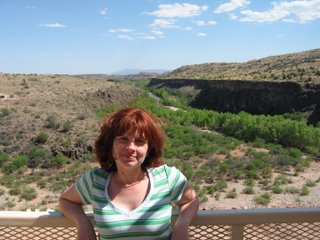
I've just finished reading The Open Curtain, by Brian Everson. I got this at the library, and the cover really caught my eye. The story is about a Mormon teenager, Rudd, who while going through his dead father's things finds a stack of letters that suggest he has a half-brother. He tracks down his half-brother, named Lael, and they form a sort of friendship. At the same time, Rudd starts a research project for school and finds a story about a murder committed in New York in 1903. The murderer is H. William Young, the grandson of Brigham Young. What piques Rudd's interest is a reference to "blood atonement". This supposedly is a part of Mormon teaching (that has been disavowed) which states that some sins are not cleansed by the shedding of Christ's blood, and in order to make it right the sinner's blood must be shed. Rudd is asked by his teacher to stop researching this, but can't get it out of his head. Things get stranger still when he starts "losing time", and when he starts finding blood on his clothes and hearing reports of people being murdered.
One day Rudd and Lael go up to the mountains. The point of view then switches to Lyndi, whose family was also in the mountains and were brutally murdered. Rudd is the sole survivor of this massacre, and he has no memory of what happened. Lyndi is strangely attracted to Rudd, perhaps because he was the last person to be with her family. She's terrified of being alone, and allows Rudd to move in with her. His behavior keeps getting stranger, but Lyndi chalks it up to his trauma. Finally, she convinces him to marry her, thinking that marriage will improve things.
Does marriage heal Rudd, or does he fall even further into psychosis? Who is Lael, and where did he disappear to after the murder of Lyndi's family?
There is a lot of Mormon imagery in this book-the bodies of Rudd and Lyndi's family are positioned in the same manner as the special marks on Mormon undergarments, and the marriage ceremony in the Mormon temple is unlike anything I have ever heard of before. Mormons are very secretive about their temple ceremonies, and in fact the author mentioned in his afterward that much of what he described in that ceremony is no longer practiced.
I must warn you that there are no easy answers in this book, so if you like cut and dried stories, you won't find one here. If you want your imagination stretched a bit, go check your local library for this one.

No comments:
Post a Comment